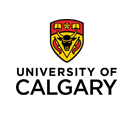 I usually post copies of my course outlines here on the blog, both for current students and for future ones. I realized that I forgot to post this earlier, so I am adding it now. This winter I have the pleasure to work with an awesome cohort of students specializing in post-secondary leadership. Here’s what the course is about:
I usually post copies of my course outlines here on the blog, both for current students and for future ones. I realized that I forgot to post this earlier, so I am adding it now. This winter I have the pleasure to work with an awesome cohort of students specializing in post-secondary leadership. Here’s what the course is about:
Course Description:
Collaboratories of Practice represent a fusion of two important developments in contemporary research: communities of practice and collaboratories. A collaboratory is a new-networked organizational form involving structured experiences of authentic, real-world practice that serve as sources of active inquiry and professional learning. Using a studio or “collaborative laboratory” learning design, this course facilitates the application of knowledge in real world settings and to investigate and learn from inquiry in the field.
The goal of this second collaboratory is to promote critical inquiry that addresses high-leverage problems of practice related to teaching, learning, and leading in order that service and collaboration among colleagues and the professional communities can be enhanced. It will provide students the opportunity to critically apply theoretical and technical knowledge, to develop and refine professional skills, and to integrate theoretical, research, and practical knowledge through a focus on data collection and analysis.
Learner Outcomes:
By the conclusion of this course each learner will:
- evaluate and select a research methodology to address the research questions.
- determine a setting, sample and data sources applicable to the research problem and purpose.
- develop methods of data collection and data analysis to address the research problem and purpose within the ethical requirements of the Research Ethics Board.
- write a draft Research Methods and Methodology section for an EdD Research Proposal.
Throughout this course each learner will:
- contribute to an online scholarly community;
- provide constructive feedback on colleagues’ work in collaboratory (studio) groups and incorporate feedback into one’s own work; and
- develop and enhance scholarly writing skills through ongoing cycles of feedback from peers, the instructor and the supervisor.
Here’s a copy of the course outline: eder_708-01_l01_eaton_w2017-final-approved
____________________________________________________
Share this post: Course outline EDER 708 – CoLaboratory of Practice https://goo.gl/m5DH99
This blog has had over 1.6 million views thanks to readers like you. If you enjoyed this post, please “like” it or share it on social media. Thanks!
Sarah Elaine Eaton is a faculty member in the Werklund School of Education, University of Calgary, Canada.



 Posted by Sarah Elaine Eaton, Ph.D.
Posted by Sarah Elaine Eaton, Ph.D.  As the research project on academic integrity and plagiarism gets underway, I prepared a training manual for the research assistants I am working with.
As the research project on academic integrity and plagiarism gets underway, I prepared a training manual for the research assistants I am working with.


You must be logged in to post a comment.